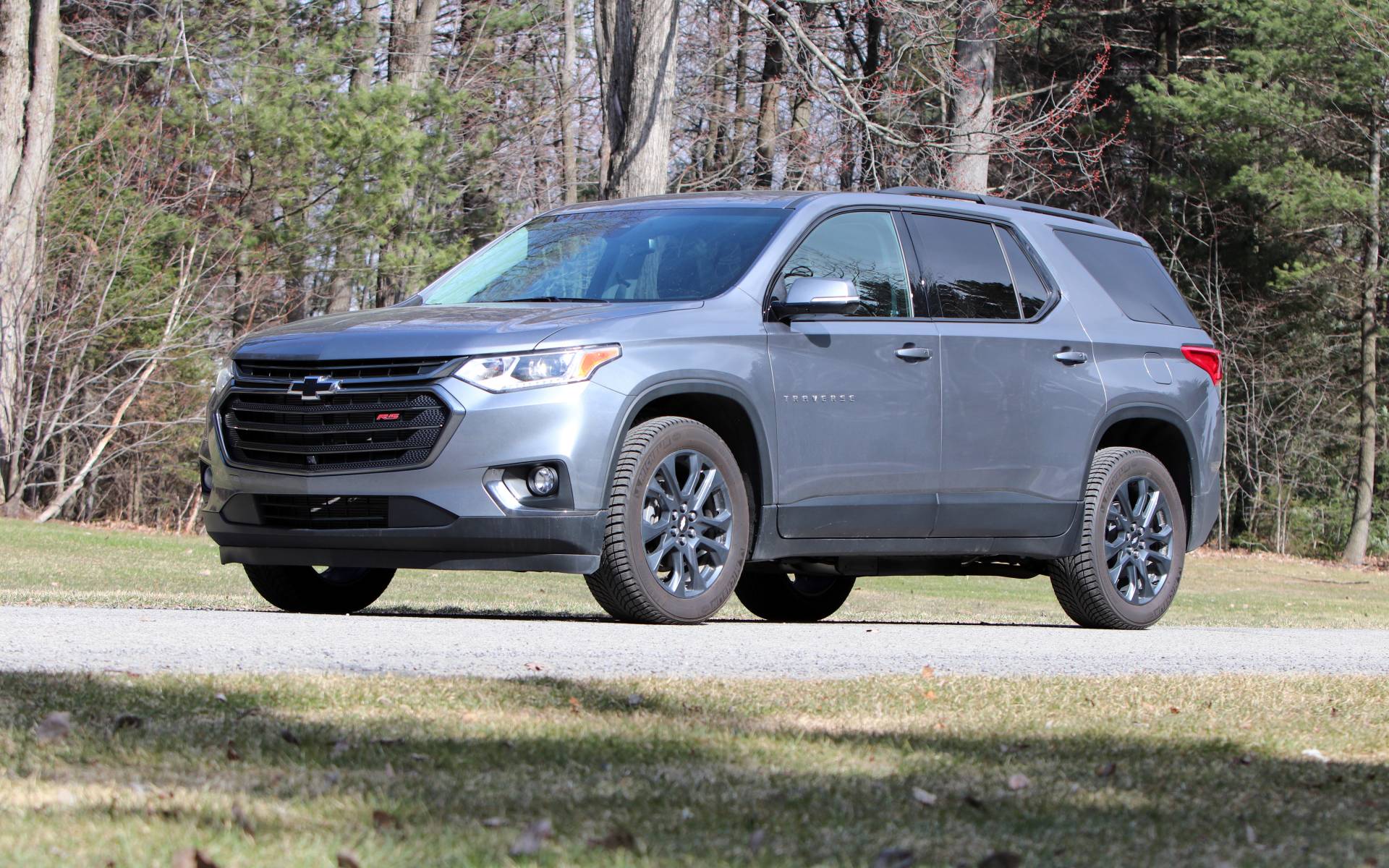2020 Chevrolet Traverse: Former Star Shines Not so Bright

| Strong points |
|
|---|---|
| Weak points |
|
Introduced in 2009 as a replacement for the Trailblazer (a nameplate that will be revived for a small new crossover in 2021), the Chevrolet Traverse enjoyed instant success with stylish looks, a comfortable ride and a versatile interior much more suited to the needs of families. It made everyone forget the Uplander minivan, too.
Unfortunately, several reliability issues and disappointing fuel economy doomed the Traverse. The company waited until the 2018 model year to completely redesign the vehicle, but the damage was done and many customers in Canada jumped ship.
The Toyota Highlander, Volkswagen Atlas and Honda Pilot are all better sellers now, and you can bet the new Ford Explorer and Kia Telluride will attract more people, as well. The Traverse was set to receive a mid-cycle update for 2021, but it has been pushed to 2022 due to the coronavirus pandemic. That certainly won’t help Chevrolet close the gap with rivals.

Is the Traverse a Good SUV or Not?
The original Traverse was a nightmare in terms of overall reliability, with many design flaws the automaker never managed to fix properly. As previously mentioned, this prompted a lot of people to turn to a different model.
To Chevrolet’s credit, the second-generation Traverse is light-years ahead when it comes to quality and performance. In fact, it might have been better off continuing under a new name. Sure enough, this is a family-friendly vehicle with generous seating for up to eight, a versatile and comfortable interior and more legroom in the third row than the competition.
The rear seats can easily be accessed by folding and sliding the right-hand seat of the second row. The system is so simple that it should serve as an example for the rest of the industry. While not as practical as a classic van, the Traverse is definitely one of the most accommodating SUVs in its class.

Six trim levels are available in Canada—not including the choice of FWD or AWD—and pricing ranges from about $36,000 to $63,000. Very few customers select the base Traverse LS, which feels more like a rental vehicle. Most opt for the mid-grade LT or the slightly sportier-looking RS featuring black 20-inch wheels.
The True North Edition is particularly attractive in our opinion. Priced like the RS, it offers more desirable amenities such as a 360-degree camera system, a panoramic roof and a digital rear-view mirror.
Comfortable and Handy
The 2020 Chevrolet Traverse boasts a comfortable and driver-friendly cockpit. While the layout is by no means fancy and could use more sex appeal, the controls are easy to use and there are storage compartments everywhere, including one concealed behind the centre touchscreen.
From a technical standpoint, the Traverse shares its C1XX platform (much better than the old Lambda chassis) and engine (a 3.6-litre V6 with auto start-stop) with the Buick Enclave and Cadillac XT6. Rated at 310 horsepower, the latter is a proven unit with impressive strength and flexibility. It is mated to a nine-speed automatic transmission that seems to hesitate at times but is definitely an improvement over the old six-speed mixer.

This generation of the Traverse is significantly more fuel-efficient than its predecessor, though it ranks just below average in the segment. The vehicle’s size and weight (over 2,000 kilograms) obviously have something to do with that.
Two things became clear after just a few minutes on the road. First, the 2020 Traverse feels solid and more refined than ever before. Second, it provides a definite sense of safety and proves surprisingly easy to drive.
Don’t be fooled by its long, minivan-like exterior; this big crossover has a tight turning radius that comes in really handy during parking manoeuvres. Ride quality is exceptional, but the Traverse is in no way sporty despite what the RS model might let on.
In Need of Better AWD
The most disappointing aspect of the 2020 Chevy Traverse is undoubtedly the all-wheel drive system. Rather than activating automatically, it requires the driver to manually select AWD via a dial on the centre console. The company says the system helps reduce fuel consumption since only the front wheels are driving the vehicle most of the time, but we find that to be a lame excuse.
Why? First of all, very few competitors are doing the same. Moreover, FWD vehicles tend to suffer from torque steer under hard acceleration, thus compromising handling.

The worst part is that Chevrolet does offer a more sophisticated, torque-vectoring AWD system, but you need to opt for a top-line High Country model at $63,000 in order to get it. In our opinion, it should be standard equipment, especially if the Traverse aspires to catch the Pilots and Ascents of the world.
Speaking of which, all those options Chevrolet is dangling in the face of customers can boost the price to shockingly high levels—and have a negative effect on depreciation. One thing you must know is that some of the Traverse’s similarly priced rivals retain more value and can be resold at a higher price.
So, to sum up, the 2020 Traverse is far from a bad product, but the competition is extremely fierce and a growing number of Canadians simply prefer to shop elsewhere.











